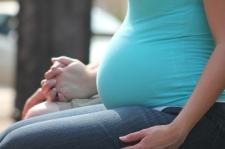Who should we believe when it comes to fertility?
By New Scientist,
New Scientist
| 07. 20. 2016
HOW old is too old to have a baby? For many women in their 30s and 40s, that question nags away at them as they try to strike a balance between their career, their finances and their desire to start a family.
If you ask the medical profession for an answer, the message is clear: don’t delay. Get pregnant in your 20s if possible, when female fertility is thought to peak. Any later and you face the prospect of infertility, or health problems associated with older pregnancy (see “Fertility facts: How late can you leave it to have a baby?“).
However, the real world seems to be ignoring that advice. In England and Wales, the mean age for a woman to give birth has been rising since the mid 1970s and is now over 30. Women in their 40s have more babies than those under 20, and the highest number of births per capita is among women aged 30 to 34.
Continue reading on New Scientist
Image via Pixabay
Related Articles
By Ava Kofman, The New Yorker | 02.09.2026
1. The Surrogates
In the delicate jargon of the fertility industry, a woman who carries a child for someone else is said to be going on a “journey.” Kayla Elliott began hers in February, 2024, not long after she posted...
By Alex Polyakov, The Conversation | 02.09.2026
Prospective parents are being marketed genetic tests that claim to predict which IVF embryo will grow into the tallest, smartest or healthiest child.
But these tests cannot deliver what they promise. The benefits are likely minimal, while the risks to...
By Pei-Chieh Hsu, Taiwan Insight | 02.02.2026
By Diaa Hadid and Shweta Desai, NPR | 01.29.2026
MUMBRA, India — The afternoon sun shines on the woman in a commuter-town café, highlighting her almond-shaped eyes and pale skin, a look often sought after by couples who need an egg to have a baby.
"I have good eggs,"...




